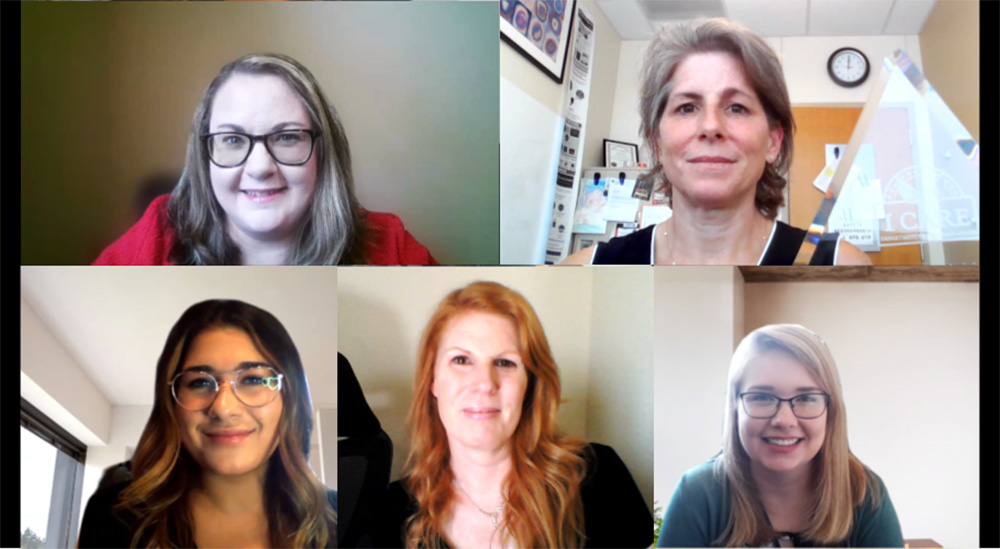The Community Partnership Challenge is an annual award recognizing outstanding partnerships that help Veterans and their communities.
A multi-disciplinary panel of VA judges has selected the VA Patient Safety Center of Inquiry – Suicide Prevention Collaborative (PSCI-SPC) as one of the three winners of the 2021 VHA National Community Partnership Challenge.
The team received the award for its work educating community partners about suicide prevention in Colorado.
One housing provider for Veterans experiencing homelessness in Colorado worked with PSCI-SPC to develop mental health screenings and referrals for Veterans to community social workers and health care providers.
Work through this one thing at a time
A Veteran working with counselors via PSCI-SPC’s psychotherapy program said, “I told one of the counselors, just this week, I had been feeling like my only path to freedom was to die.
“Now, I think, well maybe I don’t have to die to have freedom, maybe I can work through some of this stuff and have some of it out of my backpack and take one thing out at a time. I’m pretty encouraged by that.”
PSCI-SPC is a national center funded by the VA National Center for Patient Safety to research ways to reduce Veteran suicide rates, particularly among those receiving care through VA.
The program’s recognition this year was for two partnerships:
- Learning collaborative program: PSCI-SPC helped partner organizations such as housing providers, fire and police departments and libraries. They helped them build their own Veteran suicide prevention programs by sharing evidence-based and best practices for preventing Veteran suicides.
- Transit: A psychotherapy program for Veterans who are ineligible for VA services or whose eligibility status is unknown.
PSCI-SPC provides brief psychotherapy service to these patients. They follow with a crisis response plan, and then case management from a licensed clinical social worker. This ensures the Veteran receives a community mental health placement.
The coordinator can also refer the Veteran to other community partners. This helps with access to housing, food, and legal services.
Whole world of help opened
A Colorado Veteran who used the Transit program told PSCI-SPC, “I didn’t have my hopes set on help, so when I hit a dead end, I expected it. But then you called me. Your help and getting me linked into options into the community. It felt like the whole world of help opened to me. I’ve never felt that way before.”
“This program saved my life,” another Transit-user said.
“The end goal of the work is to saves lives,” said PSCI-SPC Director Dr. Bryann DeBeer. “In the future, we will apply these models to VA sponsored community care.”
“Both projects are important to Veterans. They increase access to mental health and suicide prevention care for Veterans who are at risk for suicide and may not be eligible for VA services.”
“Adaptability in a Changing World”
This year’s theme was “Adaptability in a Changing World” with a focus on partnerships that served diverse Veteran populations.
The challenge is managed by the VHA’s National Center for Healthcare Advancement and Partnerships. They facilitate partnerships advancing the health and well-being of Veterans.
More information
To read more blogs on community partnerships, visit https://news.va.gov/?s=community+partnerships.
Topics in this story
More Stories
The Medical Foster Home program offers Veterans an alternative to nursing homes.
Watch the Under Secretary for Health and a panel of experts discuss VA Health Connect tele-emergency care.
The 2024 National Veteran Suicide Prevention Annual Report provides the foundation for VA’s suicide prevention programs and initiatives.






